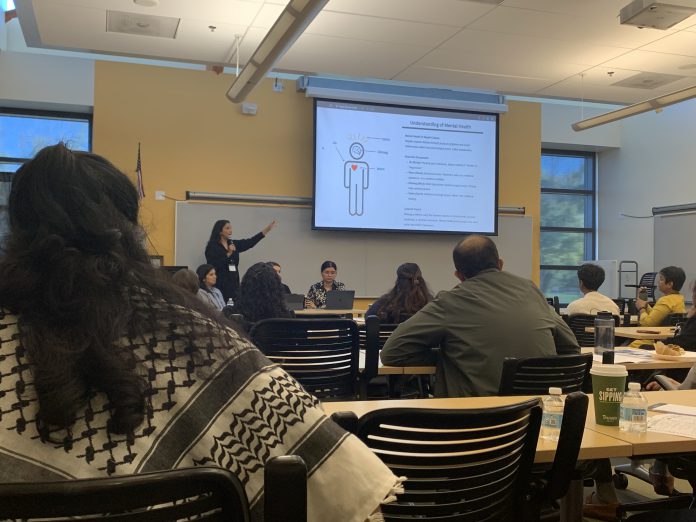Dr. Preet Kaur Sabharwal saw a gap in professional mental health care among her community, family and friends.
“The Bay Area did not look like what it looks like now when I was growing up,” Sabharwal said. “As I started to get older, I realized that the immigration waves started happening, and so there were more South Asians, but I was kind of stuck in the middle.”
Sabharwal experienced the struggle and confusion of finding personal belonging as a minority immigrant within the United States, and she saw others facing those same issues.
Sabharwal was raised with a strong notion of selfless care through compassionate support, a value which she attributed to the Sikh tradition of Seva. But, while studying psychology, Sabharwal found that a clinical outlet for the care that she wished to offer in the Bay Area did not exist, in large part due to stigma surrounding the topic of mental health within South Asian communities.
“I didn’t see a lot of South Asians in the field,” Sabharwal said, “My school really pushed hard for me to change my dissertation topic because they were like ‘Oh, well, South Asians don’t come to therapy, South Asians don’t do mental health.”
Years later, Sabharwal co-founded the South Asian Mental Health Consortium, which hosted its 9th annual South Asian Mental Health Conference the weekend of Oct. 18, 2025.
‘My school really pushed hard for me to change my dissertation topic because they were like ‘Oh, well, South Asians don’t come to therapy, South Asians don’t do mental health’
– Dr. Preet Kaur Sabharwal
Sabharwal, alongside Dr. Nina Kaur, created this organization and conference to help break the stigma and bridge the gap in South Asian mental health care.
The conference took place on Saturday, Oct. 18 at Ohlone College. It consisted of a series of presentations focused on providing care for various groups within the American South Asian diaspora. Speakers emphasized a need for culturally sensitive care, which suits patients’ individual needs, fears and beliefs.
Mental health is informed by experience, and a failure to understand that experience is a failure to provide care, according to Geetanjali Vij, a licensed therapist and speaker in the conference’s opening panel.
Vij related this concept to her experience completing clinical training during the Covid pandemic. She said that the census data that she was working with was not truly representative of the student population because certain ethnic groups were combined, notably among Muslim students.
“When you’re asking them what their ethnicity or what their identity is, the majority of this population, who’s from North Africa, Middle East, is all selecting white, and the South Asians are selecting Asian,” Vij said. “We are not a monolith.”
This meant that school administration struggled to see the need for care catered towards Muslim students, Vij said.
And this is not an isolated issue.
There are endless ways to fill out medical paperwork, and endless ways for providers to interpret that paperwork. It is easy for serious issues to fall through the cracks, especially for minority groups whose nuances, language and cultural pressures are unfamiliar to their providers, Vij said.
Vij also stressed that there is no simple solution. The best course of action is to promote dialogue and encourage South Asians to voice their perspective within the field of psychology.
“Mental health, in my opinion, cannot exist without community care,” Vij said. “I can’t predict the future, but whatever [a solution] may be, it always has had to come from taking community and taking the folks who are in the community with you.”
That is the purpose of events such as the South Asian Mental Health Conference, especially as the American South Asian cultural identity continues to grow.




